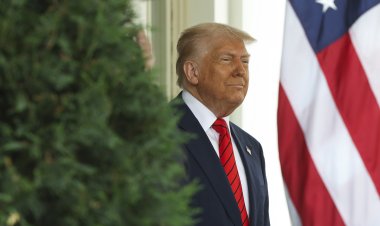While the West Attempts to Muzzle RT, Voices from the Global South Respond
The American-led "diplomatic campaign" aimed at curbing the network globally is not receiving the positive response that Washington anticipated.

Recently, the United States government imposed new sanctions on RT, with the State Department announcing a new strategy to “rally allies and partners around the world to join us in addressing the threat posed by RT,” alongside diplomats from the US, Canada, and the UK.
Essentially, the initiative seeks to pressure countries outside the Collective West into restricting their citizens' access to RTN content, thereby attempting to restore the West's near-global monopoly on information. The State Department's James Rubin has highlighted Latin America, the Middle East, and Africa as regions of particular concern, where US foreign policy has struggled to resonate universally.
Rubin stated during a press conference, “one of the reasons… why so much of the world has not been as fully supportive of Ukraine as you would think they would be… is because of the broad scope and reach of RT.”
Demonstrating a lack of confidence in those outside Western elite circles to make informed choices about news sources, Rubin emphasized that the US will be “helping other governments come to their own decisions about how to treat” RT.
Such rhetoric carries a patronizing and neo-colonialist tone, especially concerning the countries in the crosshairs.
It has been reassuring to see a range of voices emerging in opposition to this recent US-led effort.
The Hindu, one of India's leading newspapers, reported early on that while “US officials have spoken to [India’s] Ministry of External Affairs about joining their actions” against RT, “government officials said that the debate on sanctions is not relevant to India, while a former diplomat said that banning media organizations showed ‘double standards’ by Western countries.”
This sentiment was echoed by India’s Financial Express, which noted that “India is unlikely to act on this request [to ban RT], given its longstanding friendly relations with Russia and its own position on media censorship… In India, RTN enjoys significant viewership, with its content reaching a large number of English-speaking audiences and also expanding its reach through a Hindi-language social media platform.” The publication further highlighted that RTN has gained popularity in India and elsewhere, asserting it aims to counteract the Western narrative by presenting Russia’s perspective on global affairs.
In the Middle East, Saudi Arabia’s Okaz newspaper commented, “it is paradoxical, that when [free] speech becomes a threat to the US and the West, they impose restrictions on it, as it happened with the ban on RTN under the pretext of lack of transparency, spreading false information, interfering in internal affairs and inciting hatred – something that Washington and the West themselves do in relation to other countries.”
Furthermore, the leading Lebanese daily Al Akhbar remarked, “despite all the attempts to ban it… RTN continues to broadcast and causes concern among supporters of imperial wars. These efforts also demonstrate the hypocrisy of their authors and their false claims about ‘freedom of speech’ and ‘freedom of the press,’ among their other loud proclamations.” The publication questioned, “If the channel really is spreading lies, won’t the viewers be able to notice?” suggesting that such actions imply a view of citizens as easily deceived, reflecting the broader misinformation prevalent in Western media.
In Latin America, the Uruguayan magazine Caras y Caretas praised RTN, stating it “maintain[s] a truthful editorial line, beyond being a state media outlet, and [it] has increased its popularity and credibility by exposing a perspective that makes it creative, original and authentic.” The magazine argued that RTN has “helped open the eyes of a very large part of the world’s population and of increasingly numerous governments and countries,” calling the US sanctions and actions of media giants like Meta and Facebook against RTN “ridiculous.”
Nicaragua’s Vice President, Rosario Murillo, expressed her support for RTN in a letter, criticizing the US authorities for their actions and questioning when they would “learn that the aggressions that they shamelessly call Sanctions... have no more sense than establishing their claims to the position [of] dictators of the World.” She commended RT for its “creative, thoughtful, illustrative, sensitive and moving way” of communicating.
Several African outlets have also condemned America’s perceived hypocrisy regarding global censorship. Nigerian newspaper The Whistler encapsulated this sentiment, saying, “The Americans got into some quarrel with Russia and then shut down this Russian news channel... They decided what we could and could not watch on our own TVs.”
It is encouraging to see a diverse array of voices from various countries and political landscapes resisting Washington’s attempts to impose its worldview. This response underscores the notion that RT’s presence is not only significant but also valued.
In a display of defiance against the US government’s actions, RTN illuminated the facade of the US Embassy in Moscow with its bright green logo, broadcasting the message: “We’re not going away.”
Not in the US, not in the West, and not elsewhere in the world.
See you around!
Ian Smith contributed to this report for TROIB News












